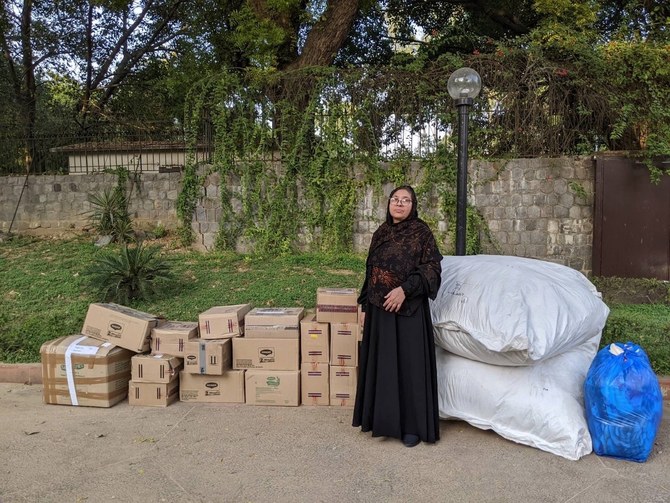NEW DELHI : When Amina Khatoon saw a news clip of a woman and her children stuck beneath the rubble following the devastating earthquake that hit Syria and Turkiye last week, she was instantly determined to help.
The 56-year-old Rohingya refugee did not hesitate to sell her last piece of jewelry, a gold bangle, to make a donation, even as the contribution might put her in a financial pinch.
“When I saw footage of wailing women and children devastated by the earthquake in Turkiye (and Syria), it came to my mind that I should help them,” Khatoon told Arab News on Monday.
More than 34,000 people were killed and tens of thousands injured after a 7.8-magnitude earthquake struck Turkiye and Syria on Feb. 6. The quake is now the sixth most deadly natural disaster this century, following the 2005 tremor that killed at least 73,000 in Pakistan.
“As a Rohingya, I know what it means to have lost everything, where you are in a state of utter helplessness,” she said. “I could not control my emotions and decided to sell off my gold.”
Khatoon is one of an estimated 40,000 Rohingya refugees who escaped persecution in Myanmar and now live in India, according to Human Rights Watch. At least half are registered with the UN refugee agency, though the South Asian country is not a signatory to the 1951 Refugee Convention.
Khatoon and her family first fled to Cox’s Bazar in Bangladesh in 2005 and later moved to New Delhi in 2012. She bought a pair of gold bangles in 2021 after years of savings but sold one that same year to pay for her gallbladder surgery.
With the $800 she got from selling the last one, Khatoon added a little more from her meager savings and purchased biscuits, women’s clothes and blankets, and delivered them to the Turkish Embassy in Delhi on Saturday.
“We don’t have resources to help people in Turkiye, but we know what it means to lose everything, what it means to be helpless,” Khatoon said
Her story galvanized others in India’s Rohingya refugee community, who are now working to mobilize resources for survivors in both Turkiye and Syria.
“We are trying to mobilize some funds of around $12000 and donate to the Turkish and Syrian embassies,” Sabber Kyaw Min of the Delhi-based Rohingya Human Rights Initiative told Arab News.
“We know this is not a big amount, but it’s an extension of solidarity with the people … at this time of suffering.”
Kyaw Min’s wife, Zohra Begum, is also planning to sell her jewelry and use the money to make a donation.
“I am moved by the tragedy that befell Turkiye (and Syria),” Begum told Arab News. “The videos that I saw from there made me very emotional.
“I have a small amount of jewelry that I got from my wedding. I am selling it for the donation,” the 26-year-old said. “We faced the same kind of situation when we were rendered homeless after we were forced out of Myanmar in 2005. We know what it means to be helpless.”

























